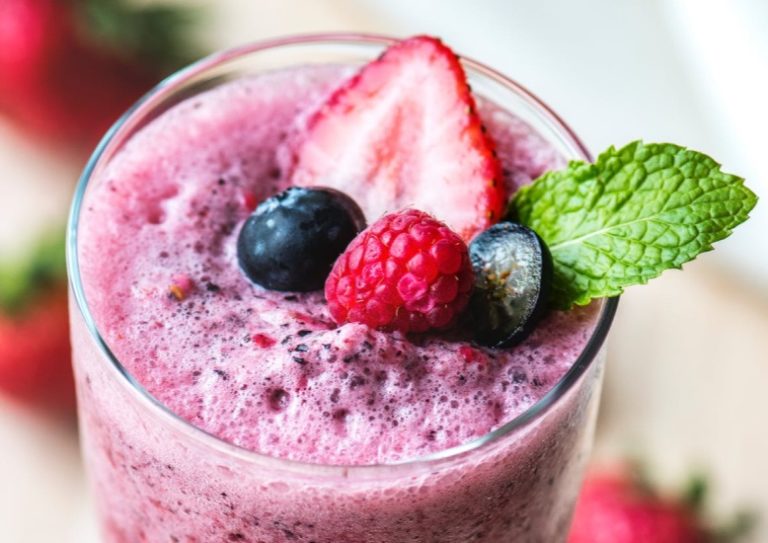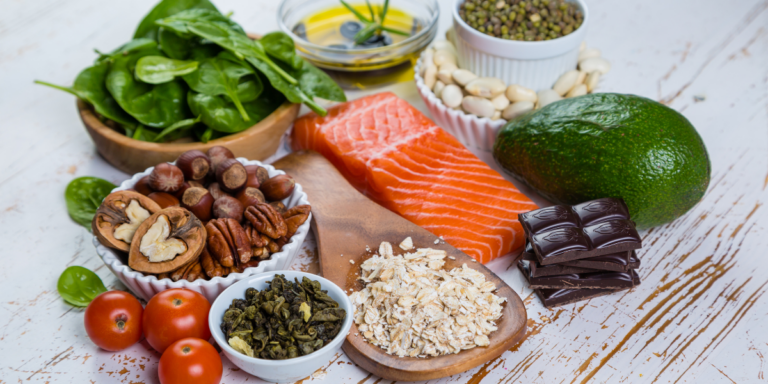Sperm development takes about 74 days, so the foods a man eats now will be the foods that influence the health of the sperm he uses for procreation, three months later. Extreme temperatures, smoking, drug use and poor diet can all impact the quality of sperm. Addressing these matters can improve the health of fresh sperm as it’s constantly being created (spermatogenesis). This is why it is so important to prepare your body ahead of time for optimal fertility.
Studies have shown that changes in nutrition, stress and environmental pollution during the critical preconception period has a direct effect on egg quality and foetal development during the early stages of pregnancy (1).
According to acupuncturist and fertility specialist Jane Lyttleton: “diet can not only impact gamate and embryo quality, but it is now recognised that the mother’s nutritional status at the time of conception can have significant implications on the health of the future baby and the adult it will grow in to.” (2)
My philosophy
Why are we so hard on ourselves? Preparing for a baby offers the perfect opportunity to get curious about our health and make changes based on love, kindness and nourishment: after all, that’s what we plan to give to our babies, so why treat ourselves any differently?
Bringing the Fertility Foods philosophy into your life should feel exciting, not like just ‘another thing to do’. Remember, nothing has to be perfect. It is far more important for your overall health and fertility to feel relaxed and just try your best.
This is why I use acupuncture alongside diet and lifestyle advice, creating a relaxing and safe space for my patients to share their fears and doubts in a non-judgemental environment.
Using centuries old, tried and tested Chinese medicine diagnostics, nutrition advice, advice on further Western medicine fertility tests and acupuncture treatment, I offer a full package of individualised support and continuity of care. This can be invaluable during this important time in your life.
Let’s get started – fertility food to add to your diet
- Lots of fresh, seasonal vegetables, with some fruit (depending on your constitution) and make it organic where possible. Pesticides are known to impact fertility for both men and women (3). A study published in Science Direct suggests that pesticides are having a major influence, with estrogen-like hormone-disrupting chemicals such as phthalates being of concern for infertility in men and women (4).
- Prioritise dark green leafy veg. Have a bunch of it with at least one meal every day. Spinach, kale, chard, broccoli, asparagus and watercress are excellent for liver qi support, omega 3 essential fatty acids and folate (the activated form of folic acid).
- Any dark red, purple and black foods. These are known in Chinese medicine as blood-building foods and are important for optimal fertility. Think beetroot, molasses, prunes, berries and cherries. Dandelion and nettle tea are also excellent blood builders.
- Probiotics found in fermented foods such as kefir and sauerkraut. For improved gut and brain function.
- Healthy fats such as butter, ghee, eggs, avocados, coconut oil, cold-pressed oils. Excellent for yin and blood deficient types. Don’t be afraid of fats; if you are trying to conceive you need fat. If you are concerned about your weight, or have damp signs, reduce carbohydrates and sugary foods rather than high-quality fats and consult your health care provider.
- Prioritise protein intake from vegetable sources and lean meat. Include red meat, fish, seafood, beans, eggs, lentils, tempeh (fermented soya bean – alternative to tofu) and bone broth. There is a common Chinese adage “blood builds blood”, meaning red and organ meats are the best way to rebuild the blood. If you have a history of a heavy menstrual flow or show some of the signs of blood deficiency (see below), you may want to consider increasing your red meat consumption.
- Avoid processed foods and stimulants such as coffee, alcohol and cigarettes.
Note: avoid cold food straight out of the fridge and lots of salad unless it’s hot outside. Chinese medicine encourages eating with the seasons and recommends foods based on your constitutional type and the energetic quality of the food. For example, watermelons, cucumbers and mint have a cooling quality, so we eat these in the Summer when we want to cool down, or to counter hot foods or a hot constitution. If you do have salads in Winter, enjoy with something warm also. Many women in my clinic show signs of cold (kidney yang deficiency) and in these cases, I encourage adding warming soups and broths to their diet, alongside acupuncture treatments.
Chinese medicine diagnosis
Below is a brief outline of the most common categories that impact fertility, according to Chinese medicine. Many women are a combination of the below types, and I’ve only included some of the most common signs. If you would like to know more about your ‘type’ and how this impacts your reproductive health, contact a local registered acupuncturist or book with me for a consultation.
Note: when we talk about the organs or meridians in Chinese medicine, we need to forget a little bit what we know about Western anatomy. There are certainly links; for example, kidney deficiency can be paralleled to some degree with adrenal burnout. However Chinese medicine takes a much more holistic view and does not separate the physical organ from its functional or spiritual qualities. Kidneys may be affected by our diet and lifestyle, but also by our emotions and the health of our parents. We treat this with acupuncture by nourishing and supporting the kidney yin, yang or jing, and in my clinic, I offer diet and lifestyle recommendations to help you support the treatment.
Kidney imbalance: yin, yang or jing
By far the most common category. Just by virtue of being a woman and experiencing hundreds of menstrual cycles over your lifetime will deplete the kidney energies. To what degree, however, can be hugely impacted by our lifestyle: stress, overwork, poor sleep/insomnia, drug and alcohol overuse, and eating poorly/on the run can all contribute to a kidney imbalance.
Signs and symptoms
Kidney yin deficiency
Internal thermostat not well regulated, night sweats, short menstrual cycle, weak/brittle nails or hair, tinnitus, wiry build, busy type of person, always ‘on’, insomnia.
Kidney yang
Feels the cold, cold abdomen and/or extremities, can have a long menstrual cycle, can have painful menses, endometriosis, urge to urinate often, low energy/fatigued, ’foggy’ feeling. Kidney yang deficiency can lead to blood stasis. (You can be a mix of yin and yang deficient.)
Kidney jing
Jing is commonly thought of as ‘reproductive essence’ and healthy jing is vital for reproduction. Severe jing deficiency is relatively rare, and often women are born with this. Late onset puberty, primary amenorrhea, sterility, resistant ovary syndrome and premature menopause are considered signs of poor kidney jing. Acupuncture treatment for those with severe Jing deficiency often yields poor results (5).
Blood deficiency
Blood deficiency can manifest as amenorrhea (absent periods), very light periods, weakness, fatigue, pale skin, anemia, dry skin and brittle hair. Blood is essential for building the womb lining after each menstrual period, so plays an important role in fertility.
Liver and heart qi stagnation
The most obvious manifestation of these are emotional. These psychological imbalances can seriously disrupt our delicate hormonal balance, leading to delayed or absent ovulation.
Heart qi instability is seen in patients who hold a lot of fear, have depression or anxiety, stress and often suffer with insomnia.
Frustration and anger are classic signs of liver qi stagnation, as are PMT symptoms and a menstrual cycle which is a bit ‘stoppy-starty’. Headaches and migraines are often seen with liver qi stagnation leading to rising heat.
Phlegm / damp
This manifests as inability to shift excess weight, the skin can have a doughy quality to it, oedema, foggy head, a heavy feeling / fatigue, a long or irregular cycle. We understand conditions such as PCOS, fibroids and cysts, to be damp conditions in Chinese medicine.
Fertility recipe
Pink velvet smoothie (makes 2)
2 medium ripe bananas
A few handfuls / 200g of berries such as blueberries, cherries, raspberries (if frozen, allow to thaw first: cold is not something to be introduced when trying to conceive)
200g coconut yoghurt, kefir or organic live yoghurt (those with damp and blood stagnation signs should avoid dairy)
A handful of spinach or other greens
1 tsp honey or sweetener of choice (optional)
Try adding one or two of the supplements below
Method
Add to blender and whizz until smooth and creamy. Have for breakfast daily, or a snack.
Superfood supplements
In general, foods that are designed by nature to nourish offspring can be utilised to create a healthy environment for your conception to take place. Think about seeds and eggs when thinking about fertility superfoods. Add to smoothies or try making your own energy balls.
Royal jelly
This treasured substance is given to the queen bee as her principle food source. She produces thousands of eggs per day and lives for up to six years rather than three months. Loaded with proteins, iron, calcium, vitamins, and fatty acids, it has been linked with fertility for centuries.
Bee pollen
High in stress-reducing B vitamins (if adding to a smoothie, sprinkle on top after blending instead of incorporating in the mix).
Spirulina
A fresh water algae, high in protein (approx 40%) and chlorophyll.
Maca
Powerful hormone regulator.
Sun warrior protein powder
For vegans/vegetarians wanting to increase protein.
Chia seeds
High in omega 3 and very hydrating (soak first).
Eloise Minton BSc (hons) Ac, NHF Dip, is a classically trained acupuncturist and a nutritional therapist. She specialises in women’s health, fertility for both men and women and support with anxiety, depression, insomnia, stress and adrenal fatigue. She works at triyoga Camden every Tuesday, 12.30 – 9pm.
For Eloise’s full schedule and to book an appointment, click here.
For more information, visit: www.eloiseminton.com
Notes:
1) Ashworth, C., Toma, L. and Hunter, M. (2009). Nutritional effects on oocyte and embryo development in mammals: implications for reproductive efficiency and environmental sustainability. Philosophical Transactions of the Royal Society B: Biological Sciences, 364(1534), pp.3351-3361.
2) Lyttleton, J. (2013). The treatment of infertility with Chinese medicine. Oxford: Churchill Livingstone, p.407.
3) Clementi, M., Tiboni, G., Causin, R., La Rocca, C., Maranghi, F., Raffagnato, F. and Tenconi, R. (2008). Pesticides and fertility: An epidemiological study in Northeast Italy and review of the literature. Reproductive Toxicology, 26(1), pp.13-18.
4) Kaur, R., Gupta, V., Christopher, A. and Bansal, P. (2015). Potential pathways of pesticide action on erectile function – A contributory factor in male infertility. Asian Pacific Journal of Reproduction, 4(4), pp.322-330.
5) Lyttleton, J. (2013). The treatment of infertility with Chinese medicine. Oxford: Churchill Livingstone










